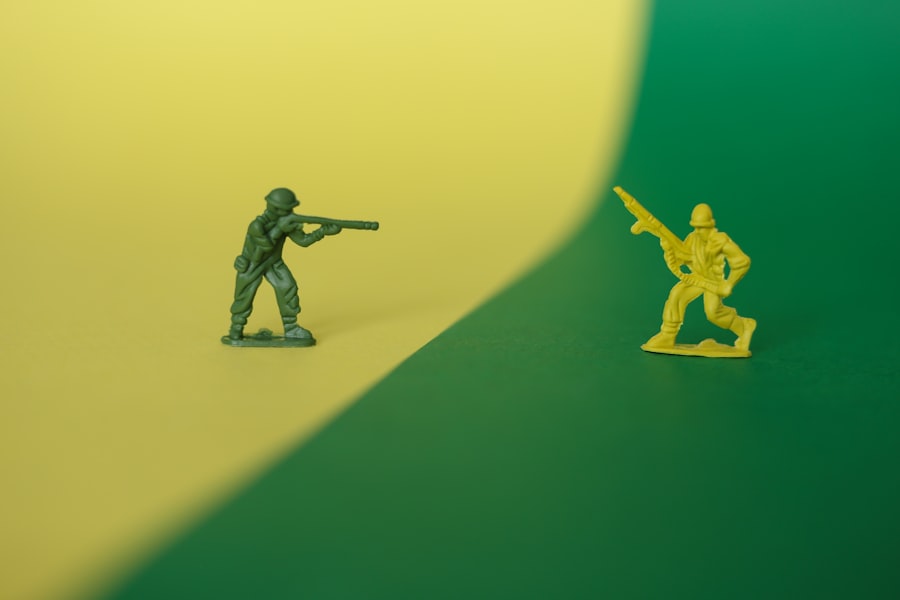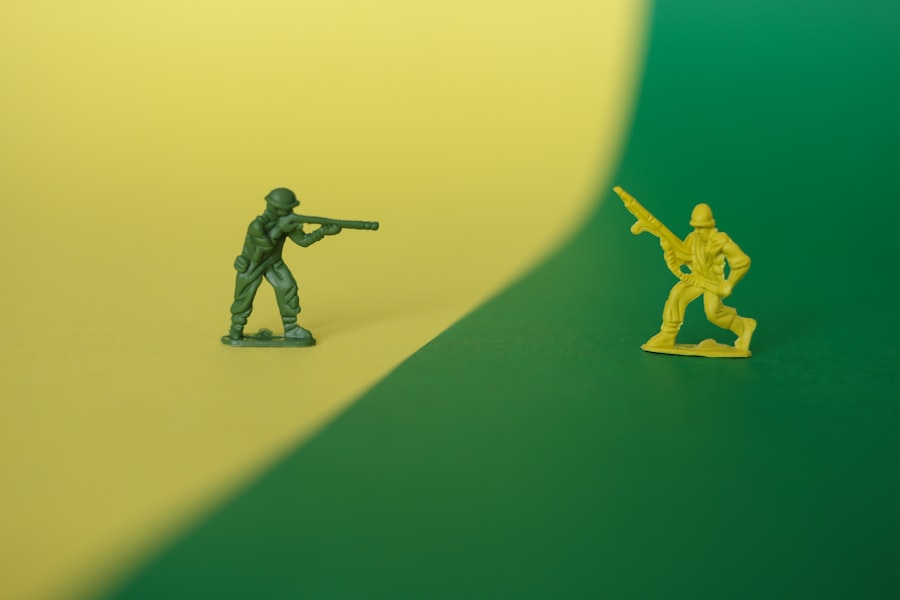Modern warfare has undergone a profound transformation over the past few decades, driven by technological advancements, geopolitical shifts, and evolving military doctrines. The nature of conflict has shifted from conventional battles fought on defined frontlines to complex engagements characterized by asymmetrical tactics, cyber operations, and hybrid warfare. This new paradigm requires militaries to adapt rapidly to changing circumstances, employing a combination of traditional and innovative strategies to achieve their objectives.
As nations grapple with these changes, the Russian military stands out as a case study in adaptation and resilience, navigating the challenges posed by modern warfare while seeking to maintain its status as a formidable global power. The Russian military’s approach to modern warfare is deeply rooted in its historical experiences and strategic culture. The lessons learned from past conflicts, particularly the Cold War and the wars in Chechnya, have shaped its current military doctrine.
As Russia seeks to assert its influence on the global stage, understanding its military strategies and adaptations becomes crucial for comprehending contemporary geopolitical dynamics. This article will explore the evolution of Russian military strategy, the challenges it faces in adapting to modern warfare, and the impact of technology on its operations, among other critical aspects.
Key Takeaways
- Modern warfare has evolved significantly, with technology and cyber warfare playing a crucial role.
- Russian military strategy has evolved to incorporate hybrid warfare tactics and special operations forces.
- The Russian military faces challenges in adapting to modern warfare, particularly in the realm of technology and information operations.
- Technology has had a significant impact on Russian military operations, influencing tactics and strategies.
- Russia’s approach to cyber warfare and information operations is a key component of its modern military strategy.
The Evolution of Russian Military Strategy
The evolution of Russian military strategy can be traced back to the Soviet era, where the emphasis was placed on large-scale conventional warfare and the ability to mobilize vast resources quickly. However, the dissolution of the Soviet Union in 1991 marked a significant turning point. The Russian military faced a period of decline characterized by budget cuts, outdated equipment, and a lack of coherent strategy.
In response to these challenges, Russia began to reassess its military doctrine in the early 2000s under President Vladimir Putin’s leadership. This reassessment led to a renewed focus on modernization and the development of new strategies that would enable Russia to project power effectively. One of the key developments in Russian military strategy has been the concept of “hybrid warfare,” which blends conventional military capabilities with irregular tactics, cyber operations, and information warfare.
This approach allows Russia to exploit vulnerabilities in its adversaries while minimizing its own risks. The annexation of Crimea in 2014 exemplified this strategy, as Russia employed a combination of unmarked troops, local militias, and information campaigns to achieve its objectives without engaging in traditional warfare.
Challenges Faced by the Russian Military in Adapting to Modern Warfare

Despite its strategic advancements, the Russian military faces significant challenges in adapting to modern warfare. One of the primary obstacles is the need for comprehensive modernization of its forces. While Russia has made strides in updating its equipment and technology, many units still rely on outdated Soviet-era hardware.
This disparity can hinder operational effectiveness and limit the military’s ability to respond swiftly to emerging threats. Additionally, the integration of new technologies into existing structures poses logistical and training challenges that require time and resources. Another challenge lies in the cultural shift required within the military establishment.
The traditional hierarchical structure of the Russian armed forces can impede rapid decision-making and adaptability on the battlefield. In modern warfare, where speed and flexibility are paramount, fostering a culture that encourages initiative and innovation is essential. The Russian military must overcome bureaucratic inertia and embrace new operational concepts that prioritize agility and responsiveness in dynamic combat environments.
The Impact of Technology on Russian Military Operations
| Technology | Impact on Russian Military Operations |
|---|---|
| Cyber Warfare | Enhanced ability to disrupt enemy communications and infrastructure |
| Unmanned Aerial Vehicles (UAVs) | Improved reconnaissance and surveillance capabilities |
| Missile Defense Systems | Increased protection against incoming threats |
| Electronic Warfare | Ability to jam enemy radar and communication systems |
| Advanced Weapon Systems | Enhanced precision and firepower |
Technology plays a pivotal role in shaping modern military operations, and Russia has recognized the importance of integrating advanced systems into its armed forces. The development of precision-guided munitions, unmanned aerial vehicles (UAVs), and advanced communication systems has transformed how conflicts are conducted. These technologies enable more effective targeting, enhanced situational awareness, and improved coordination among different branches of the military.
Moreover, Russia’s investment in electronic warfare capabilities has become a cornerstone of its military strategy. By disrupting enemy communications and navigation systems, Russia can gain a significant advantage on the battlefield. The use of drones for reconnaissance and strike missions has also become increasingly prevalent, allowing for real-time intelligence gathering and targeted strikes with minimal risk to personnel.
As technology continues to evolve, Russia’s ability to leverage these advancements will be crucial in maintaining its competitive edge in modern warfare.
Russia’s Approach to Cyber Warfare and Information Operations
In an era where information is as valuable as traditional military assets, Russia has developed a sophisticated approach to cyber warfare and information operations. The Kremlin recognizes that controlling narratives and influencing public perception can be as impactful as conventional military engagements. Cyber operations have become a key component of Russia’s strategy, enabling it to conduct espionage, disrupt critical infrastructure, and sow discord among adversaries.
The use of social media platforms for disinformation campaigns has also gained prominence in recent years. By disseminating false narratives and manipulating public opinion, Russia aims to undermine trust in democratic institutions and create divisions within societies. This approach was notably evident during the 2016 U.S.
presidential election, where Russian operatives sought to influence voter sentiment through targeted online campaigns. As cyber capabilities continue to evolve, Russia’s emphasis on information warfare will likely remain a central aspect of its military strategy.
The Role of Special Operations Forces in Modern Warfare

Special Operations Forces (SOF) have emerged as a critical component of modern military strategies worldwide, and Russia is no exception. These elite units are designed for unconventional warfare, counter-terrorism operations, and intelligence gathering. Their ability to operate independently or alongside conventional forces allows for greater flexibility in addressing diverse threats.
In recent conflicts, such as those in Ukraine and Syria, Russian SOF have played pivotal roles in achieving strategic objectives with minimal exposure to risk. Their training emphasizes adaptability, stealth, and rapid response capabilities—qualities that are essential in modern combat scenarios where traditional tactics may fall short. As Russia continues to refine its military doctrine, the integration of SOF into broader operational frameworks will likely become increasingly important.
The Influence of Hybrid Warfare on Russian Military Tactics
Hybrid warfare represents a paradigm shift in how conflicts are conducted, blending conventional military force with irregular tactics and non-military means. Russia’s embrace of hybrid warfare reflects its understanding that modern conflicts often occur within complex environments where traditional definitions of war are insufficient. This approach allows Russia to exploit vulnerabilities in adversaries while minimizing direct confrontation.
The annexation of Crimea serves as a prime example of hybrid warfare in action. By employing unmarked troops alongside local militias and leveraging information campaigns, Russia achieved its objectives without engaging in full-scale conventional warfare. This tactic not only allowed for plausible deniability but also created confusion among adversaries regarding Russia’s intentions.
As hybrid warfare continues to shape global conflict dynamics, understanding its implications for Russian military tactics is essential for anticipating future engagements.
The Importance of Training and Education in Modern Warfare
Training and education are fundamental components of any military’s ability to adapt to modern warfare effectively. For the Russian military, investing in comprehensive training programs is crucial for ensuring that personnel are equipped with the skills necessary to operate advanced technologies and engage in complex combat scenarios.
Moreover, fostering a culture of continuous learning within the military is essential for adapting to evolving threats. As new technologies emerge and conflict dynamics shift, ongoing education ensures that personnel remain informed about best practices and innovative strategies. By prioritizing training and education, the Russian military can enhance its overall effectiveness and maintain a competitive edge on the global stage.
Russia’s Defense Budget and Military Modernization Efforts
Russia’s defense budget plays a critical role in shaping its military modernization efforts. Over the past decade, significant investments have been made to upgrade equipment, enhance capabilities, and improve overall readiness. This modernization drive reflects Russia’s desire to project power regionally and globally while addressing perceived threats from NATO and other adversaries.
However, challenges remain regarding resource allocation and prioritization within the defense budget. Balancing modernization efforts with domestic economic pressures requires careful planning and strategic foresight. As Russia navigates these complexities, ensuring that modernization initiatives align with broader national security objectives will be essential for maintaining military effectiveness.
The Role of Nuclear Weapons in Russian Military Strategy
Nuclear weapons remain a cornerstone of Russian military strategy, serving as both a deterrent against potential adversaries and a means of projecting power on the global stage. The doctrine surrounding nuclear weapons emphasizes their role as a stabilizing force in international relations while also acknowledging their potential use in limited conflicts. Russia’s investment in modernizing its nuclear arsenal reflects an understanding that these weapons play a critical role in maintaining strategic parity with other nuclear powers.
The development of advanced delivery systems and missile defense capabilities underscores Russia’s commitment to ensuring that its nuclear deterrent remains credible in an increasingly complex security environment.
The Future of Russian Military’s Adaptation to Modern Warfare
As global conflict dynamics continue to evolve, the future of the Russian military’s adaptation to modern warfare will depend on several factors. The ability to integrate advanced technologies into operational frameworks will be crucial for maintaining effectiveness on the battlefield. Additionally, fostering a culture that embraces innovation and adaptability will be essential for navigating emerging threats.
Moreover, geopolitical considerations will shape Russia’s military strategies moving forward. As tensions with NATO persist and new challenges arise from non-state actors and cyber threats, Russia must remain agile in its approach to conflict. By leveraging lessons learned from past engagements while embracing new operational concepts, the Russian military can position itself as a formidable force capable of addressing contemporary security challenges effectively.
In conclusion, the evolution of Russian military strategy reflects a complex interplay between historical experiences, technological advancements, and geopolitical realities. As it navigates the challenges posed by modern warfare, understanding these dynamics will be essential for anticipating future developments on the global stage.
The Russian military’s failure to adapt to modern warfare has been a topic of significant discussion among defense analysts and military strategists. This issue is particularly evident in the context of evolving technological advancements and the increasing importance of cyber capabilities, which have reshaped the landscape of contemporary conflicts. For a deeper understanding of these challenges and the implications for global security, you can explore a related article on this topic by visiting In The War Room. This resource provides insightful analysis and expert opinions on the complexities of modern military operations and the strategic missteps that have hindered Russia’s ability to effectively engage in today’s dynamic warfare environment.
WATCH NOW! 🎖️ Plot Twist: Russia’s Military Is Being Eaten Alive By Its Own Corruption
FAQs
What is the article about?
The article discusses the Russian military’s struggle to adapt to modern warfare tactics and technologies.
What are some examples of modern warfare tactics and technologies?
Modern warfare tactics and technologies include cyber warfare, unmanned aerial vehicles (drones), precision-guided munitions, and advanced communication systems.
What are some reasons for the Russian military’s failure to adapt?
Some reasons for the Russian military’s failure to adapt to modern warfare include outdated equipment, lack of investment in research and development, and a focus on traditional military strategies.
How does the Russian military’s failure to adapt impact its effectiveness?
The Russian military’s failure to adapt to modern warfare tactics and technologies can impact its effectiveness in combat situations, as it may struggle to counter advanced enemy capabilities.
What steps can the Russian military take to improve its adaptation to modern warfare?
The Russian military can take steps to improve its adaptation to modern warfare by investing in research and development, updating its equipment and training its personnel in modern tactics and technologies.




